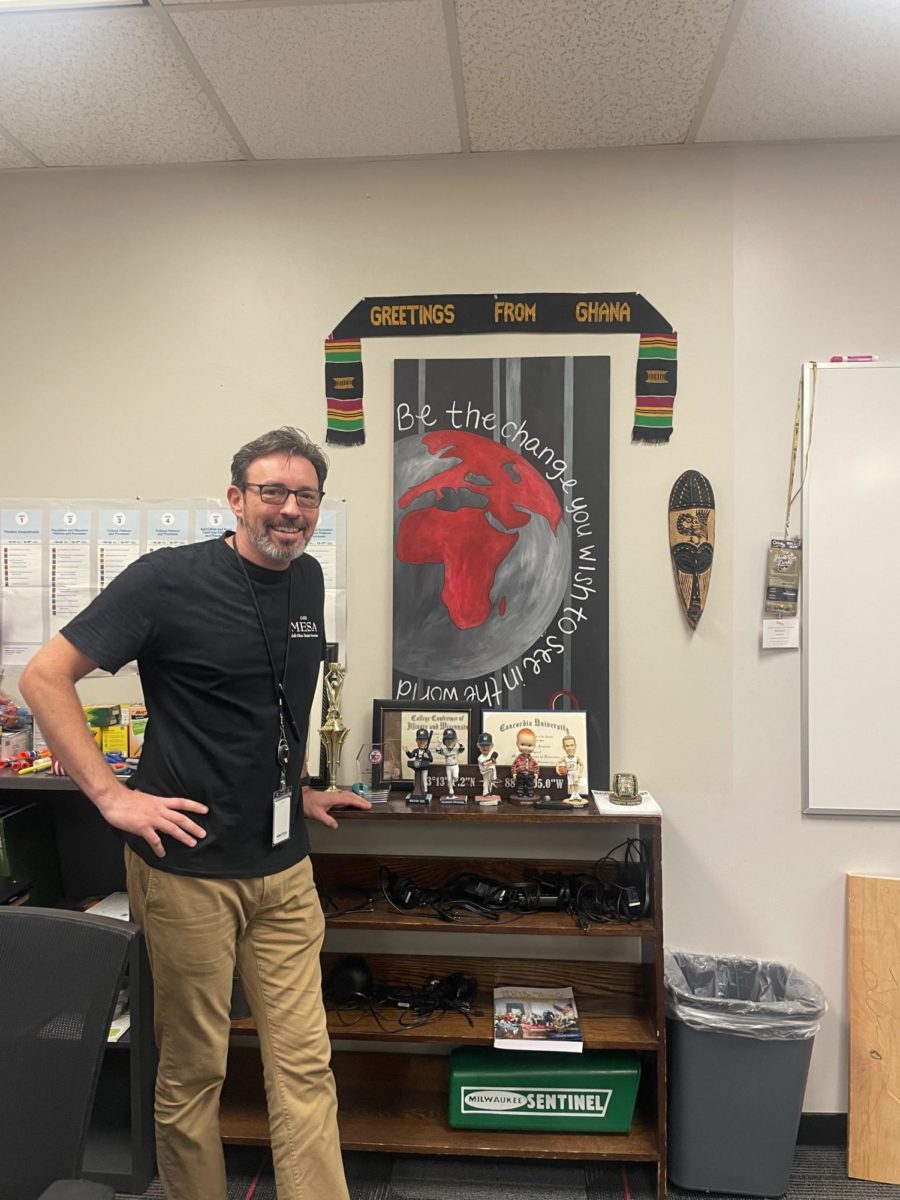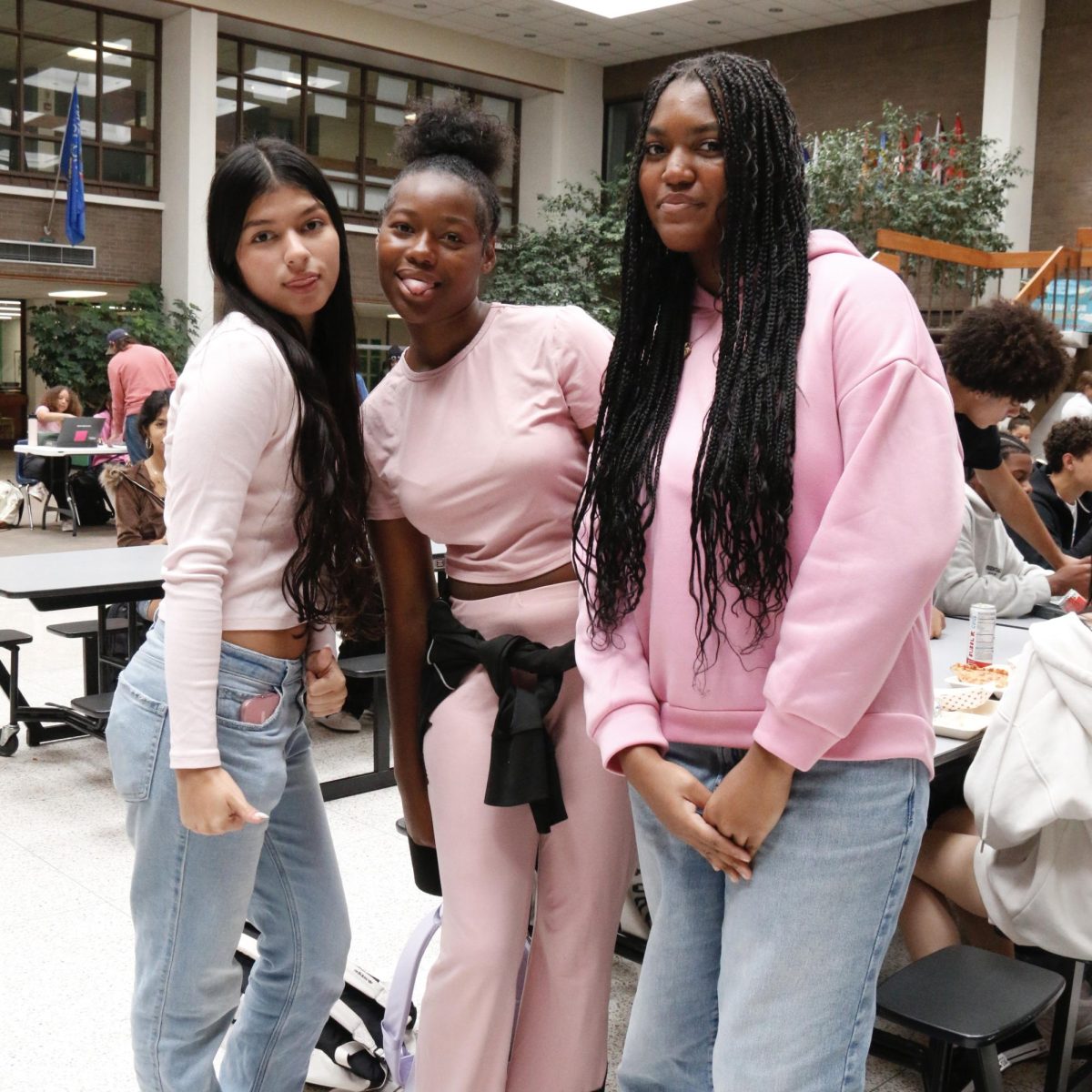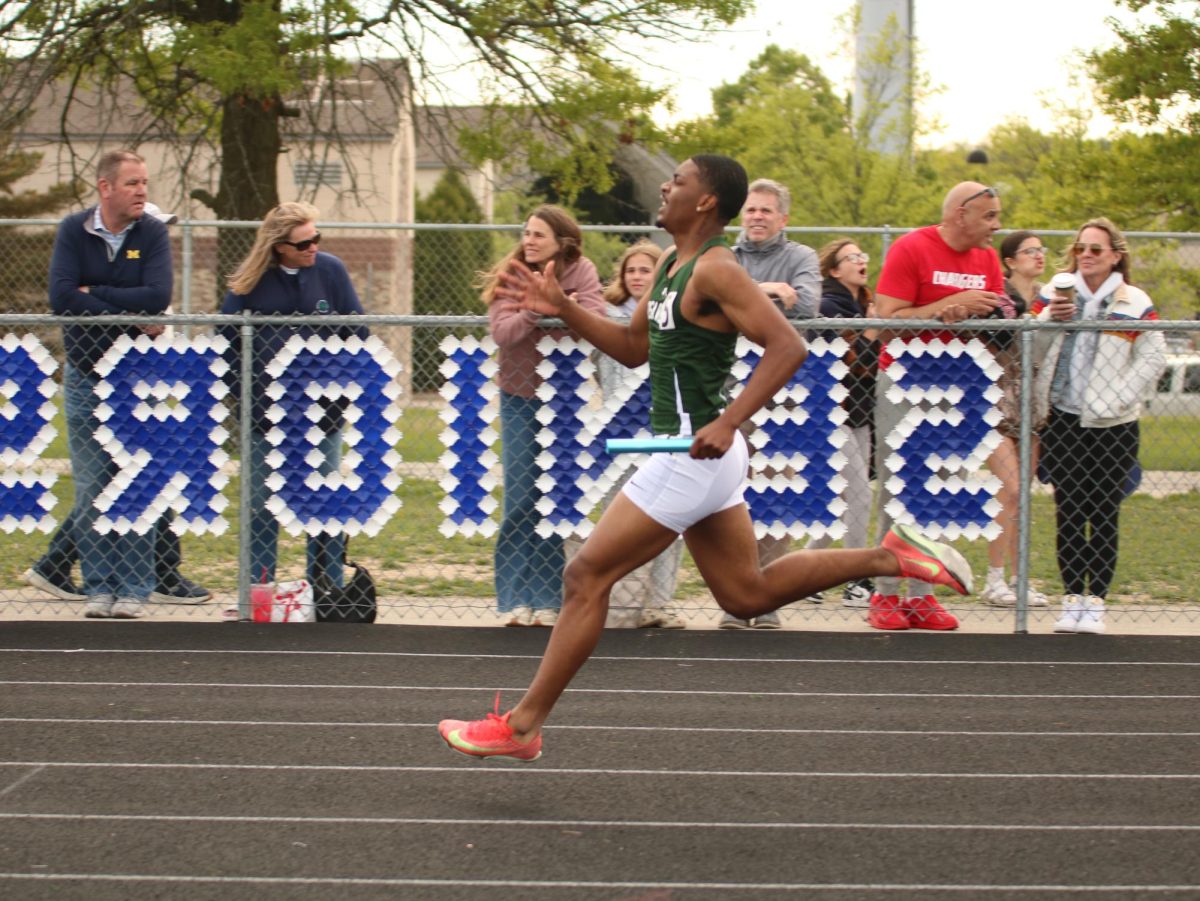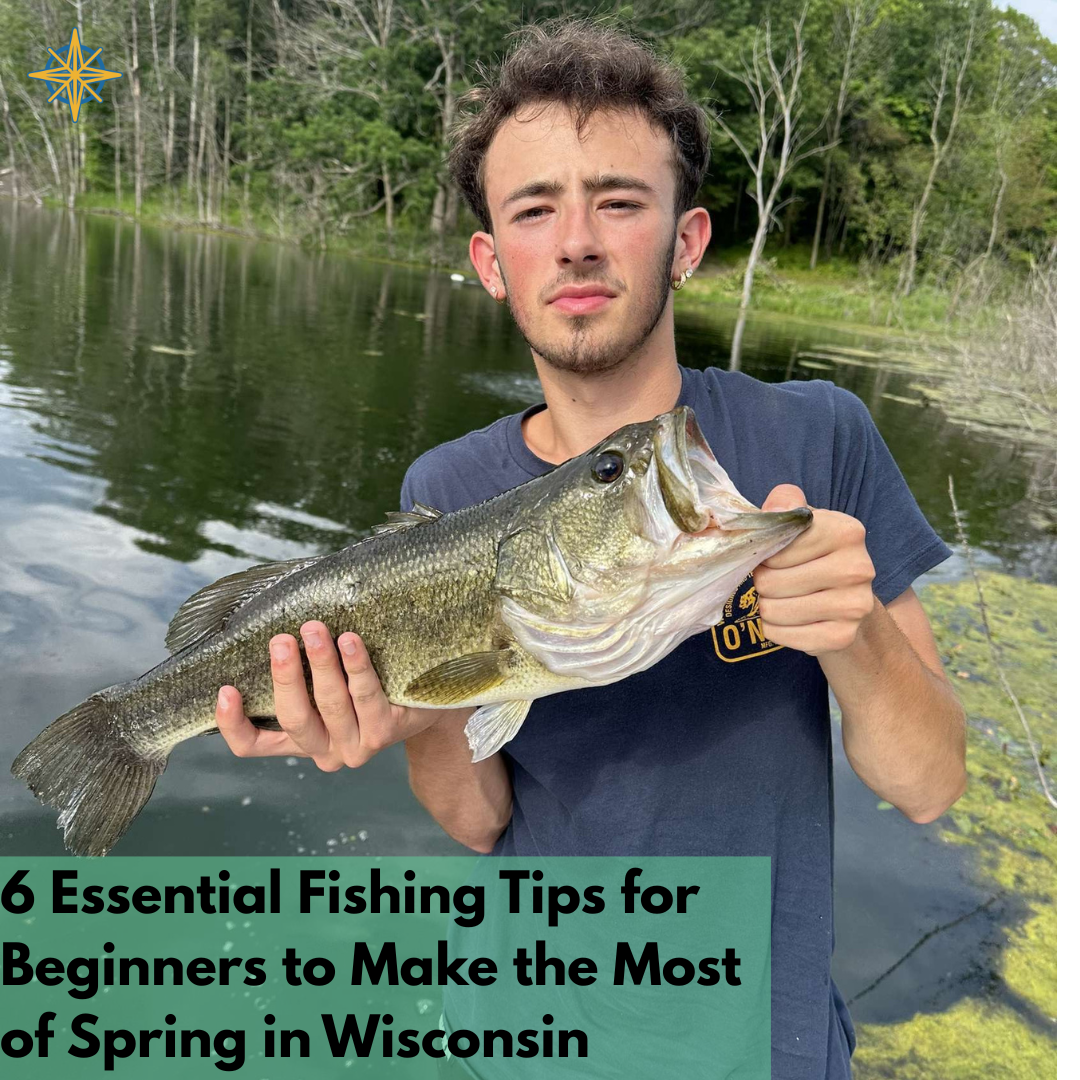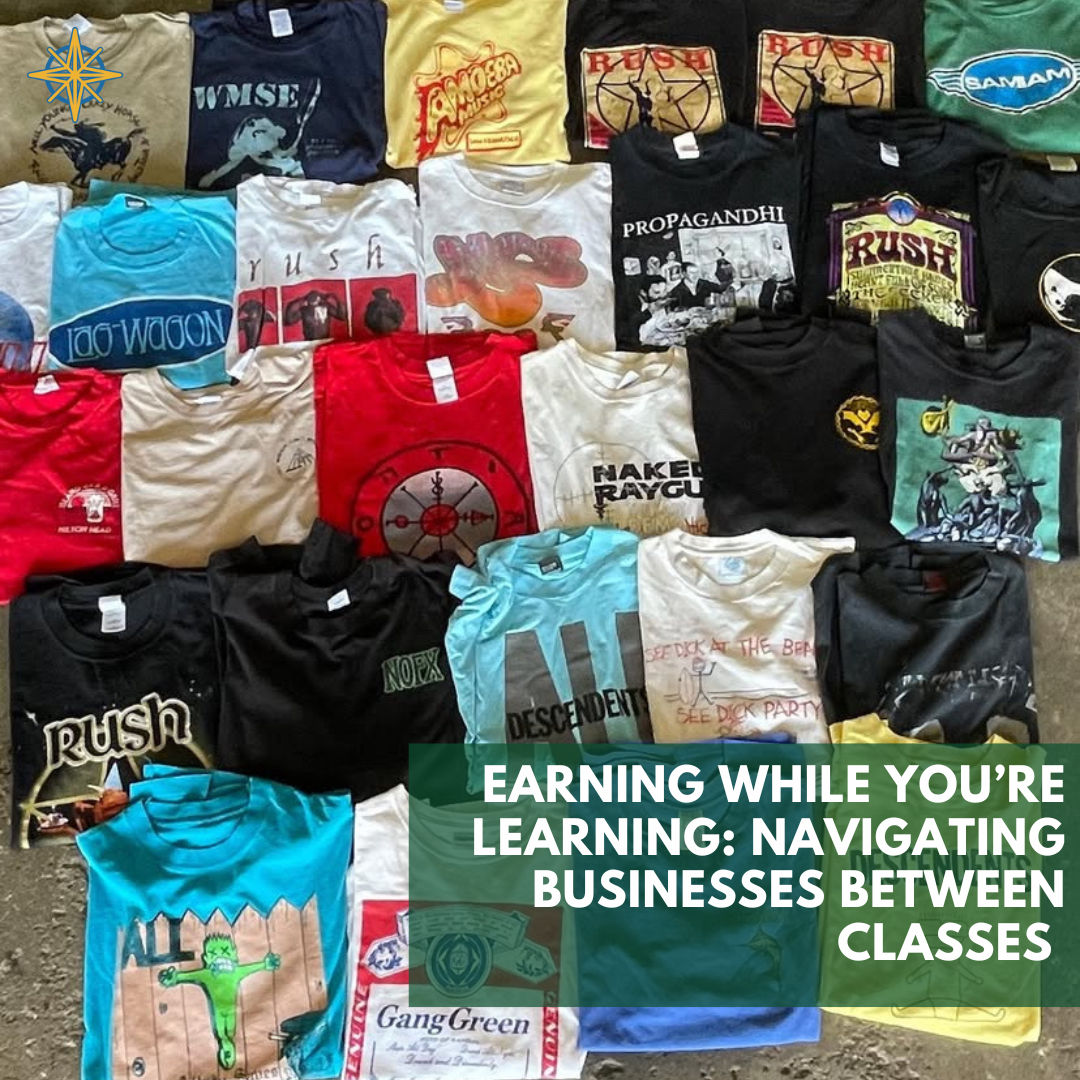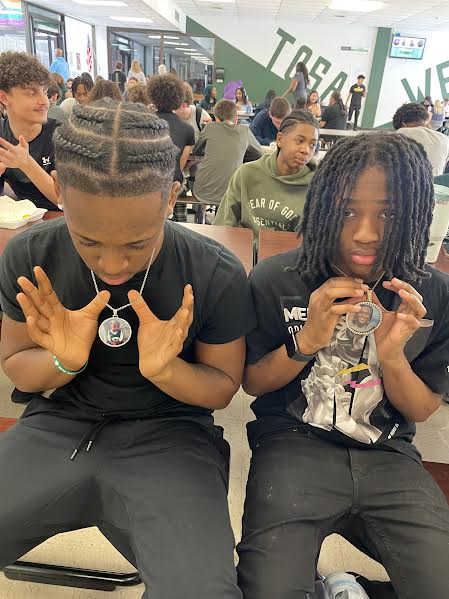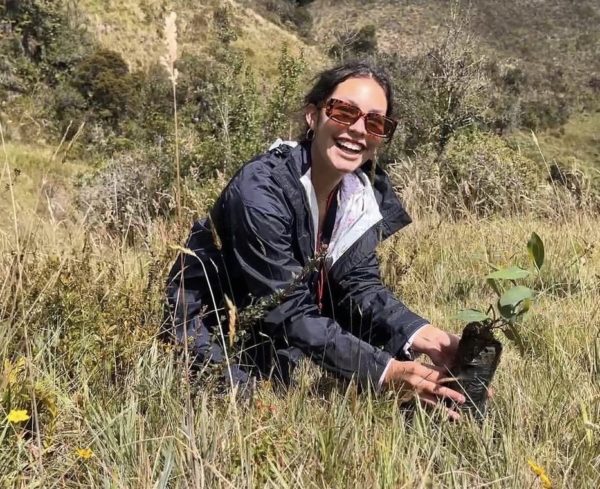Interview with Mr. Aronow
Over the summer, one of the burning questions on the minds of many Tosa East students has been: Who will ever replace the beloved Mr. McDaniel? Well, a new school year has begun, and along with it, a new era in the social studies department. Is this new teacher worthy of inhabiting McDaniel’s old room? Well, according to the man himself, Mr. Aronow, “life isn’t a competition,” but if it was, the following interview finds that he would surely be ahead of the curve.
What classes do you teach at East? Do you have a favorite and why?
APPSE (American Public Policy Special Emphasis) and AP Human Geography. Honestly, not yet. They’re very different from each other on many levels. They’re different classes obviously, but the types of students in each course are very different. I’m not really sure, but I can tell you this: As an undergraduate student, geography was one of my two majors, so I definitely have a passion for geography. That aspect of it is very appealing, whereas U.S law and constitutional history is not an area of my strength. Although, I’m also super motivated to learn new things. It’s something that I’m driven by. APPSE is a very fun opportunity for my own learning. I also think that the students in APPSE are very interesting and cool to work with.
Can you tell me about the journey you’ve taken to get to where you are now?
When I was in high school, if you would’ve told me that I was going to be a high school teacher someday, I would’ve laughed and said: “There’s no chance.” I didn’t like school growing up very much, especially high school. In college, I started off as a math major because that was my best subject in high school. Soon after, I discovered that I didn’t enjoy math enough for it to be something I wanted to focus on. I’m lucky that as a freshman in college, I took Intro to Geography and Intro to Macroeconomics. By the end of my freshman year, I had switched majors to focus on those topics. Later, I went to graduate school primarily for geography, with an economics focus. I then left grad school before I finished to work in radio. Since it was a hobby of mine in college, I thought that I’d try it out. I worked in broadcasting for about nine years, pretty much all throughout my twenties. Towards the end of my twenties, I started to feel like maybe a life of radio wasn’t going to be fulfilling for me personally. It just didn’t seem like it would make much of a difference. At that time, I was about to marry a woman who was a teacher, and I thought, “Maybe I could use my economics and geography background to teach those concepts.” So that’s what got me into education. I genuinely didn’t think that I was gonna stick around as a classroom teacher for long. I thought I would do it for a few years and then move on to become a school district superintendent, maybe get into public policy around education. But honestly, after about two years in the classroom, I found that I really enjoyed it. I didn’t think I was going to like working with students, that was not my motivation. I was not one of those teachers that was like: “I love working with kids.” But it turns out I do, I really do. So then I just kept teaching.
What specifically brought you to East? Anything in particular that interested you about our school?
I would say the number one thing was the values of this school district, specifically related to inclusion and celebrating diversity. They’re much more in line with my own personal values than where I was previously. A nice side effect, not really the motivation, is that I live in Wauwatosa. I wasn’t thinking: “I can’t wait to work in Tosa because I live here.” I just like this school a lot. I had an exchange student living with me a couple of years ago, and she went here. She had an amazing experience, she really liked it. That allowed me to sort of see Tosa East through the eyes of a parent. So yeah, value alignment, but a nice side effect is that I can walk to school.
What are some of your hobbies?
I am way too into Fantasy Football. I’m also kind of a data nerd so in my free time, I like to expand my ability to work with Excel and other data analysis applications. I wouldn’t call myself a computer nerd, but some other people might. I also love exploration and travel. I like exploring places in the U.S where there aren’t a lot of people. I mean, going to cities is interesting, but I’m really into the rugged part of the U.S. But then globally, I’m much more into exploring city centers. I also like doing little home projects in the workshop I’ve made in my garage. I’m not a woodworker, but I enjoy doing home-improvement stuff.
What is something that not a lot of people know about you?
I got a tattoo when I was eighteen. I got it high on my shoulder so that it wouldn’t be visible when I was wearing a t-shirt. It’s a baseball logo from the movie, Major League. I used to be a baseball fanatic. Something clicked in my brain when I was in seventh grade and I just got into baseball like you wouldn’t believe. I wasn’t very good at baseball though. I kind of played, but I was really just a fan. I loved the history and to be honest, the stats–data nerd.
If you could go back in time to witness a historical event, what would it be and why?
Assuming that I have the ability to understand any language, I would like to be in the room at the time when Martin Luther was on trial before the Catholic Church. I’m not Lutheran, but I just think it’s a fascinating moment in history. Luther was grilled, yet still stood up for what he believed in. I can’t even imagine how massive the tension was in the room. It would be kind of cool to be a fly on the wall in that situation.
What economic or financial advice would you give to your students?
I would say two things. Number one, open up a Roth IRA immediately. Have your parents open one up with you right now, or if you want to do it on your own, wait until you’re eighteen. Then, start putting money into the Roth IRA right away. Even if it’s ten dollars a month. Ideally, pick a percentage of your income (like five or ten percent). As you make more money, the money that goes into the Roth IRA will go up. Invest that money in a diverse, low cost mutual or index fund. By the time you retire, you’ll be a multi-millionaire.
Number two, don’t go to an unnecessarily expensive college or university. A lot of people go to colleges that cost more than they need to. People should be savvy with how they spend their money. Maybe go to a community college for two years and then transfer to a four year school. It sucks if you want that four year college experience, but it will allow you to then be thirty years old and way ahead of your peers. I mean, life isn’t a competition, but you’ll just be in a better financial position. You’ll be able to acquire a house sooner, take trips sooner, and just have a better early adult life.
Who is your favorite historical figure?
I’m going to say two people: Socrates and Marcus Aurelius, who was a Roman emperor. There’s certain aspects of both of them that I really appreciate and admire. I like Socrates’ willingness to question everything. Society, norms, power. I love his quote that was something along the lines of: “The only thing I know for sure is that I know nothing.” That notion that the world is vast and you have to explore it. You also have to explore your own thoughts and your own mind.
I like Marcus Aurelius because he’s a stoic; Someone who’s renowned for sort of being able to deal with life’s ups and downs, tragedy and success, all that stuff. And to just deal with what life brings you in a way that’s rational, stable, and even-handed. I like his stoic approach to leadership and to life. As a human, he might’ve been a jerk. I don’t know everything about him, but I like that stoic aspect of him.
If you could only read one book for the rest of your life, what would it be?
One of my favorite books of all time is called: Homegoing. It’s an amazing piece of fiction that is partially based in historical reality. It’s a story of multiple generations of a family, beginning in the sixteenth century in Ghana and ending in modern-times. It follows each generation of this family, as the family is split right at the beginning. One member of the family is captured, transported across the middle passage, and sold into slavery. The other member is not and stays in Ghana. Then, it sort of tracks the lineage of these two people throughout history. It’s just beautifully written. The characters are fake, but they could be real people. Unfortunately, it’s nearly impossible for many African American individuals to trace their lineage back before the 19th century. It’s a tragedy, but this book, in a way, can kind of be like a stand-in. It sort of tells a common story of the African who was sold into slavery, as well as future generations of those enslaved, emancipated, and fighting for civil rights. To me, it’s a fascinating potential ancestry of a modern-day African American. It’s no one, but it could be anyone. It’s really powerful.
What is your favorite country and why?
The United States is a phenomenal country and I love the fact that we are constantly trying to form a better union. We’re clearly imperfect, but we have pretty good fundamentals. On that level, I would say the United States.
Because of its geography and its really interesting culture, the underrated country that I’m a fan of is Slovenia. It has a really interesting blend of Slavic culture with some Italian influence. It’s a tiny little country with amazing geography. There are legit mountains, a huge cave system, and it’s right on the Adriatic Sea. Slovenia also has a really cool capital (Ljubljana). There’s a lot of younger people there that speak English, so it’s very approachable and accessible for me. If I could pick a place to live for just like the amenities, that’s where I would live. I’ve been there two or three times. You can go across the whole country in a day, from the Alpine Mountains to the ocean shore, to these amazing fifteenth century castles. It’s like a fairy-tale country.



